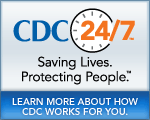Adverse Drug Events in Children
An adverse drug event (ADE) is when someone is harmed by a medicine. Approximately 150,000 children (17 years old or younger) visit emergency departments each year because of adverse drug events.
Children less than 5 years old are more likely than older children to visit the emergency department for an adverse drug event, and each year one in every 250 two-year-olds visits an emergency department for a medication poisoning.
To reduce the risk of harm from adverse drug events in young children, parents should:
- Use prescription and over-the-counter medicines only as directed.
- Carefully give medicines as directed on the label or as instructed by a physician or pharmacist.
- Make sure that safety caps are locked and that medications are kept in a place young children cannot reach or see.
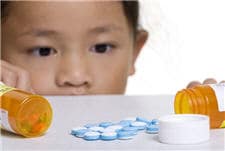
Finding and eating or drinking medicines, without adult supervision, is the main cause of emergency visits for adverse drug events among children less than 5 years old. Approximately 35,000 children less than 5 years old are brought to emergency departments each year because of unsupervised ingestions. Nearly 70% of emergency department visits for unsupervised medication ingestions by young children involve 1- or 2- year old children.
Tips for Parents
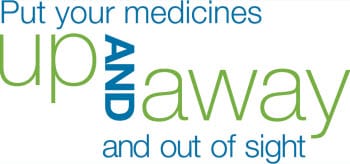
- Store medications in a place that is too high for young children to reach or see.
- Do not leave medicines out after using them (such as at a sick child’s bedside). Immediately return medicines to your safe storage location after each use.
- Never leave children alone with medicines. If you are giving or taking medicine and you have to do something else, such as answer the phone, take the medicine with you.
- Never tell children that medicine is candy so they’ll take it, even if your child does not like to take his or her medicine.
- Remind babysitters, houseguests, and visitors to keep purses, bags, or coats that have medicines in them out of children’s reach and sight.
- When purchasing medicines for young children, check to make sure they are in child-resistant packaging that you are comfortable using. Make sure to fully re-secure the cap each time you use the medicine.
- Put the Poison Help number, 1-800-222-1222, on or near every home telephone and save it on your cell phone.
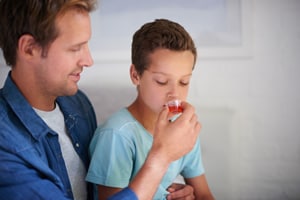
For most of the emergency visits involving medication errors, young children were given the wrong dose of medicine by mistake.
Tips for Parents
- Read all of the information on the package label and follow the directions. Do not give a child medicine more often or in greater amounts than is stated on the package.
- Use only the dosing device (oral syringe, dosing cup) that is included with the product. If a measuring device is not included with the product or you do not receive one, purchase one at a pharmacy or ask for one from your pharmacist. A kitchen spoon should not be used to give medicines to children.
- Check the “active ingredients” in prescription and over-the-counter medicines. Make sure that you do not give your child two medicines that have the same “active ingredient.” If you have questions ask your doctor or pharmacist.
- If you do not understand the instructions on the label, or how to use the dosing device (oral syringe, dosing cup), talk to your pharmacist or doctor before giving the medicine.
Antibiotics can kill bacteria, but not viruses. The flu and most colds, coughs, sore throats, and runny noses are caused by viruses. Taking antibiotics will not cure a viral infection, keep others from catching the illness, or help your child feel better. Although antibiotics are good drugs for certain types of infections, they are also one of the types of medicines that cause the most emergency visits for adverse drug events. More than 60,000 children are brought to emergency departments each year because of adverse events from antibiotics.
Cough and cold medicines do not cure the common cold. Although cough and cold medicines may be used to treat the symptoms of the common cold in older children, they should not be used in children less than 4 years old. Too much cough and cold medicine can cause serious harm or even death in children.
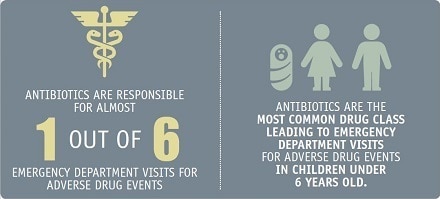
Tips for Parents
- Do not ask for antibiotics when a doctor says they are not needed. Taking antibiotics when they are not needed increases your child’s risk of getting an infection later that resists antibiotic treatment. Learn more about when to use antibiotics appropriately.
- If your children are prescribed an antibiotic, make sure they take all the medicine as prescribed, even if they feel better. Do not save antibiotics for later.
- Do not use cough and cold products in children under 4 years of age unless specifically told to do so by a physician.
- Do not give children medicine that is packaged for adults unless specifically told to do so by a physician.
- Articles on adverse drug events in children, CDC
- Up and Away Campaign, CDC
- Tips to Prevent Poisonings, CDC
- Antibiotic Prescribing and Use in Doctor’s Offices, CDC
- Tips for Parents About the Safe Use of Over-the-Counter (OTC) Medicine, Food and Drug Administration (FDA)
- Protect Kids from the Dangers in Our Medicine Cabinets, Coffee with America
- Medication Safety, American Academy of Pediatrics
- The Healthy Children Show: Giving Liquid Medicine Safely, American Academy of Pediatrics
- Caring for Your Child’s Cold or Flu, American Academy of Pediatrics
- Keeping Medicine Away From Children, JAMA Patient Page
